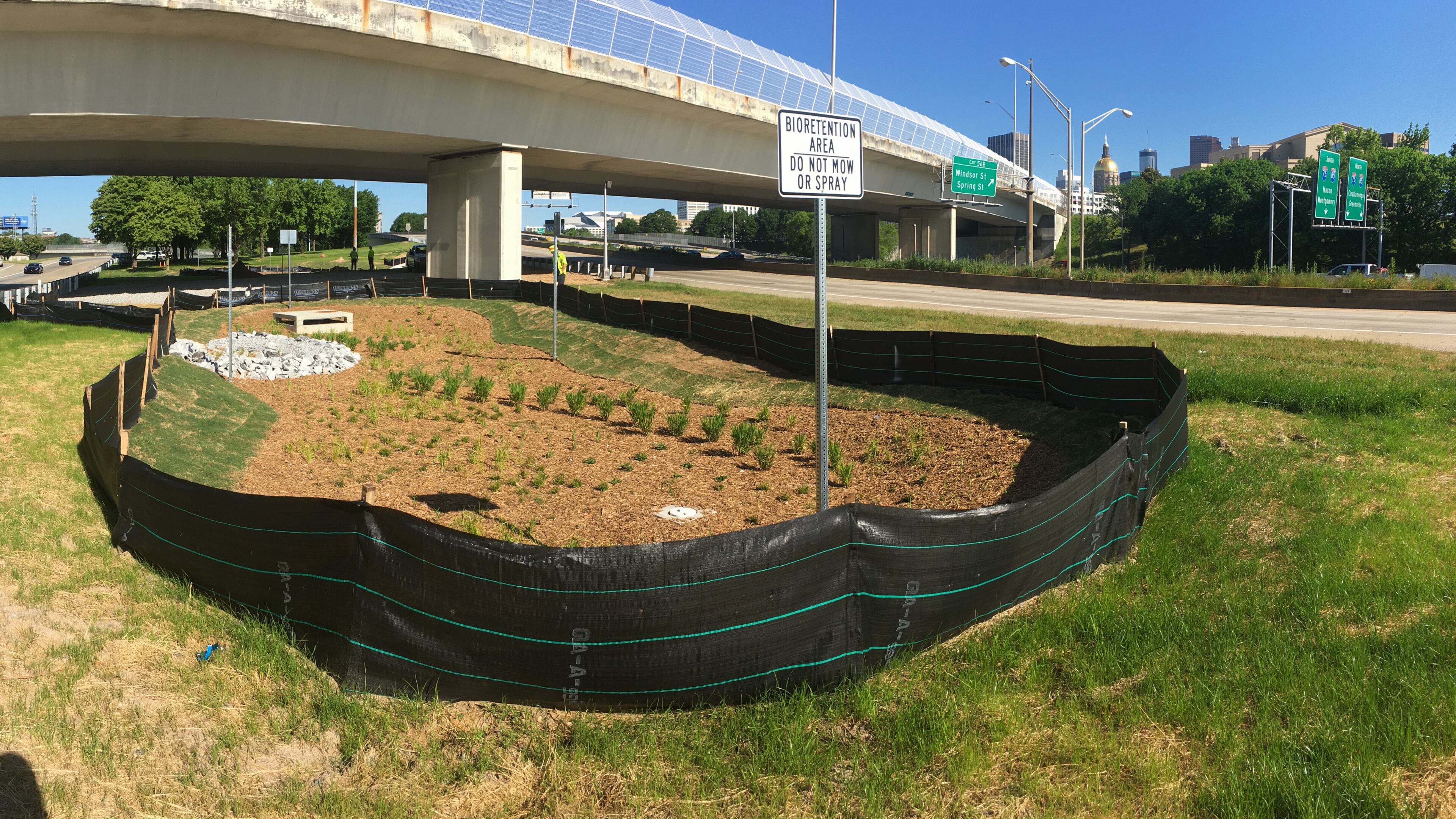Opinion: Partnering to better manage our water

An innovative project at the crossroads of I-75/85 and I-20 could change the way water is managed across Atlanta and the nation.
For decades, the neighborhoods of Peoplestown and Summerhill have suffered from flooding and sewage overflows, exacerbated by the stormwater runoff from nearby highways and parking lots surrounding the former Olympic Stadium. When it rains, the stormwater rushed over the pavement, overwhelming aging water infrastructure and causing health risks and property damage. It’s the type of longstanding environmental injustice that communities of color face here in Atlanta and nationwide.
The area, the headwaters of Intrenchment Creek, is a tributary to Atlanta’s other river, the South River, and was once covered in trees and lush vegetation. The soil could naturally soak up rainwater, and the creek could shrink and expand with the seasons and storms. Fast forward to today: downtown’s high-rise buildings, the State Capitol, sprawling parking lots and highways dominate the headwaters. So when we — with our many local partners and community leaders —began to confront the challenge of modern-day flooding and sewage overflows, we looked to nature for lessons. To restore clean water and the healthy hydrological function of the watershed meant designing solutions including “bioretention” cells — or large rain gardens—to capture and infiltrate stormwater, as well as plantings to filter pollutants.
The project was completed in the spring and is the first of its kind in Georgia — the Georgia Department of Transportation’s first-ever green infrastructure retrofit. We’re thrilled with the result. The two bioretention cells east and west of the Capitol Avenue bridge will infiltrate 750,000 gallons of stormwater runoff from the highways annually. The landscaped rain gardens will provide ongoing beautification to the area and, if scaled, could go a long way toward enhancing this gateway to Atlanta. And to gauge the success of the project long-term, the University of Georgia is assessing the amount of runoff reduction and monitoring bacteria and nutrient levels in the stormwater discharge.

This project is part of a larger effort on the part of the Intrenchment Creek One Water Management Task Force, a partnership of local community leaders, environmental justice advocates at Atlanta-based ECO-Action, government agencies, businesses, and the City of Atlanta Department of Watershed Management. The aim? To address flooding and sewer overflows and secure community benefits. The project was made possible with $400,000 of GDOT funding, a $197,745 grant from the Georgia Environmental Protection Division and support from Central Atlanta Progress and the Turner and Kresge Foundations. And the project will continue to thrive with ongoing maintenance provided by Central Atlanta Progress.
This investment will pay dividends for years to come. A new report by American Rivers, “Rivers as Economic Engines: Investing in Clean Water, Communities and our Future” (AmericanRivers.org/InvestInRivers) details the jobs and economic benefits of investing in this kind of water infrastructure and river restoration. It also makes the case for a federal investment of $500 billion over the next 10 years to benefit clean water and healthy rivers. That kind of investment would benefit Georgia and communities nationwide. Such an investment could mean more successful efforts like those in the Intrenchment Creek headwaters.
Here in the heart of the city, we’re showing how the issues of clean water, community strength, equity and justice are interconnected, and how the only way forward is by working to address these issues together.
Jenny Hoffner is vice president for conservation strategies at American Rivers, leading their national conservation work including climate adaptation and water justice. She is based in Atlanta and works with communities to address water management challenges by advancing resilient, equitable, integrated infrastructure.


